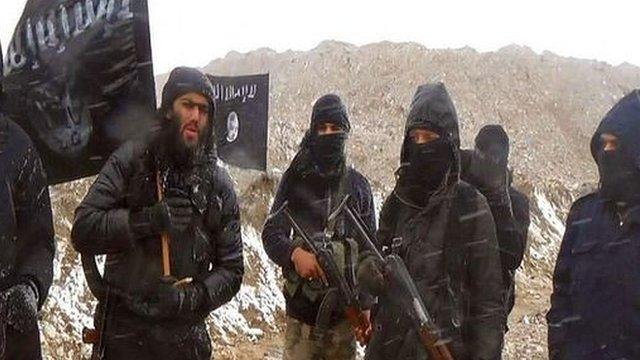Rise in number of terror suspects investigated
- Published
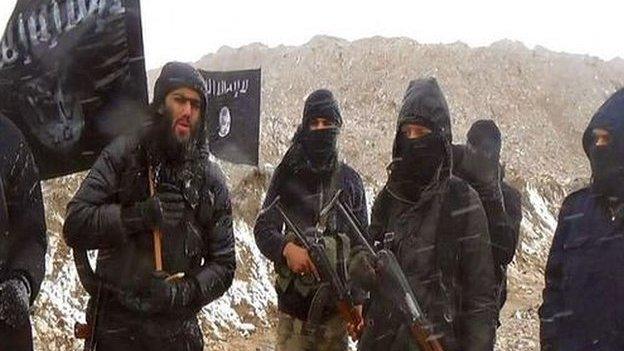
Ifthekar Jaman, a Briton who was killed fighting in Syria, used his online status to attract others to his cause
The number of terror suspects being investigated by prosecutors has risen over the past four years and is still increasing, the BBC has learned.
Figures show that there were 406 suspects in the year to April 2015, compared with 298 four years ago.
Director of Public Prosecutions Alison Saunders told BBC's Newsnight numbers could reach a peak of 600 this year.
The number of people returning from Syria was "driving" the rise, she said.
'No sign of decline'
Ms Saunders said she is having to nearly double the number of prosecutors undertaking counter-terrorism-related work because of the volume and complexity of plots facing the UK.
There are 30 Syria-related cases involving alleged plots waiting to go to court and others are in the pipeline, she said.
"We do think that the number of returnees from Syria is driving a good proportion of the increase in cases we are seeing. It's showing no sign of decline either.
"None of these cases are easy, they are all quite complex cases to deal with, and the (suspects) all tend to plead not guilty so we preparing full cases."
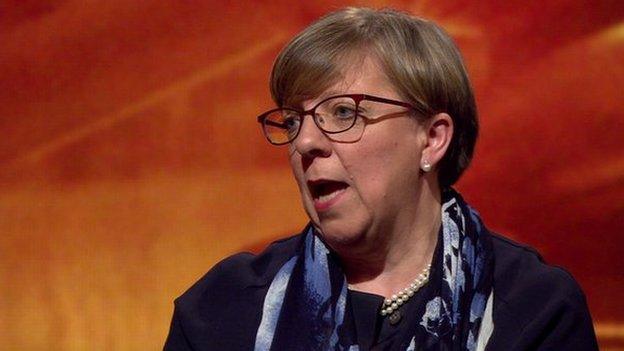
Alison Saunders said she is having to nearly double the number of counter-terrorism prosecutors
According to official figures, the Crown Prosecution Service dealt with 298 terror suspects or defendants in 2010/11. Over the following years the numbers rose to 311, 333, 371 and 406.
Helen Ball, senior national co-ordinator for counter-terrorism policing, told Newsnight the rate of people travelling from the UK to Syria was still rising.
The trend "worried and surprised her", she said.
"I thought that when it became clear the sort of murders, torture and other things that were happening in Syria, I thought that when people really started to see that, they would not wish to travel any more.
'Disastrous mistakes'
"What concerns me is that, what (Islamic State) is doing is being normalised, and people seem to be accepting that they are building a state, building an alternative life and it's legitimate for people to join that, it is a real worry."
Ball, who is a deputy assistant commissioner at the Metropolitan Police, said the people who went to Syria were being lied to about what would happen to them.
"They are making disastrous mistakes, but I think they are being lied to and manipulated and the more that we can work with families to help them understand the signs and symptoms, the more we can try to protect them from travelling."
- Published12 October 2017
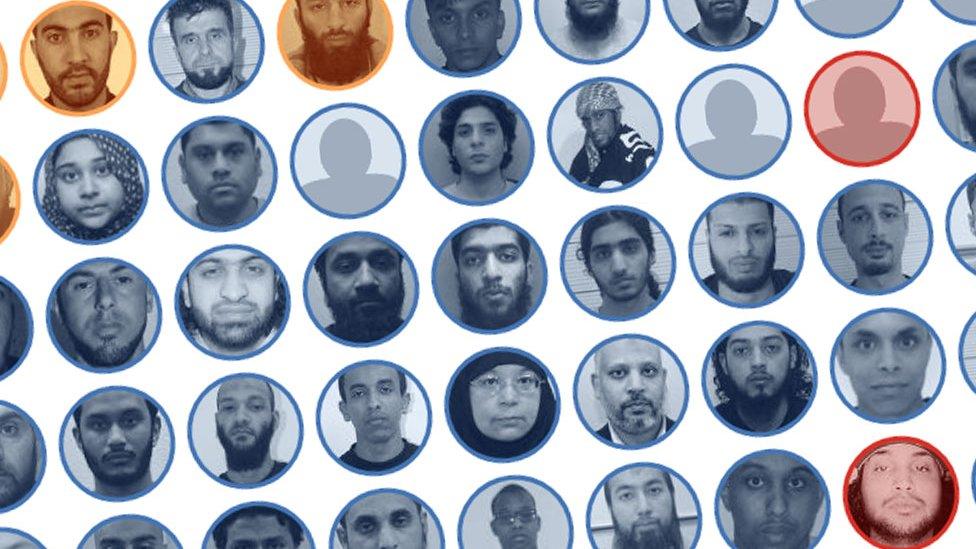
- Published6 March 2015
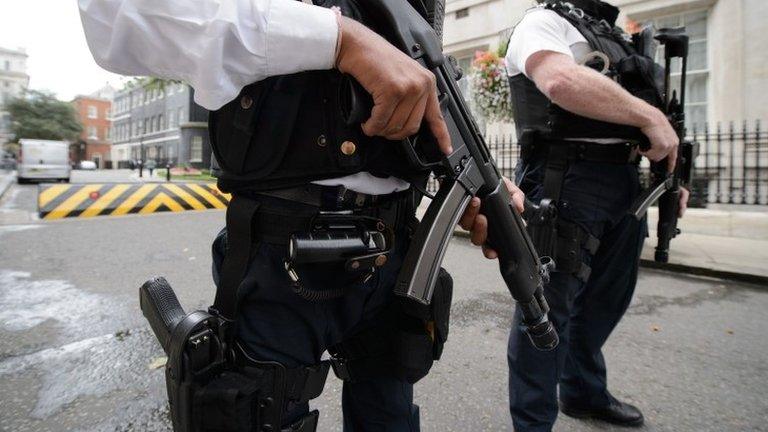
- Published26 March 2015
